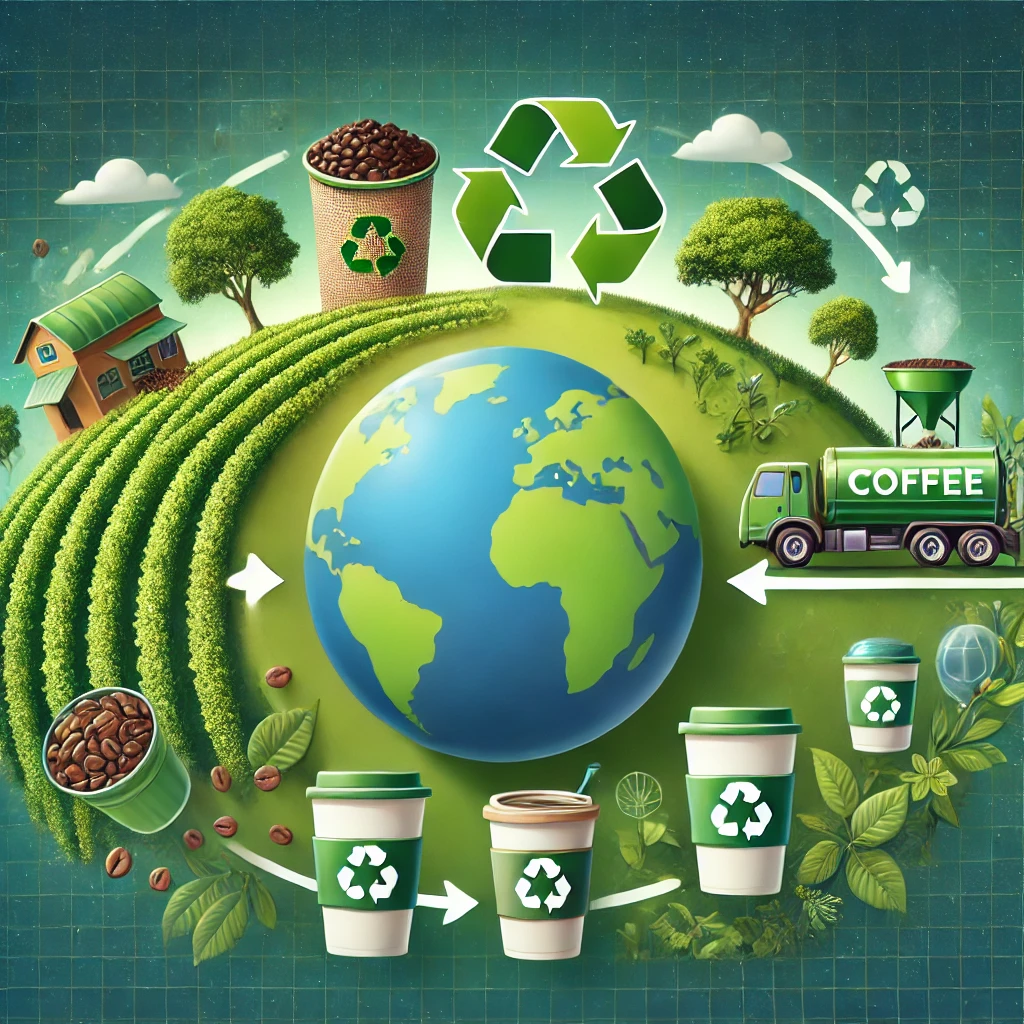Coffee has become a daily ritual for millions, but have you ever wondered about coffee sustainability and how your cup impacts the planet? From sourcing beans to the waste generated by single-use cups, coffee’s environmental footprint is significant. As consumers, understanding this empowers us to make better choices for a more sustainable future.
Understanding Coffee Sustainability
Coffee sustainability involves minimizing the environmental and social impacts of coffee production. This process ensures that coffee farmers receive fair pay and that eco-friendly farming methods preserve the planet for future generations. These sustainable practices span from how coffee is grown to how it’s consumed.
Growing coffee requires vast amounts of water, land, and energy. In some regions, unsustainable farming practices cause deforestation, soil degradation, and loss of biodiversity. However, choosing sustainable options, such as shade-grown or organic coffee, allows you to make a positive difference.
The Environmental Impact of Your Coffee
Your daily coffee habit might seem harmless, but it affects the environment in many ways. Many coffee cups have plastic linings, which makes them difficult to recycle. Globally, people use 16 billion disposable coffee cups annually, generating a huge amount of waste. By opting for reusable mugs, you can reduce this waste.
Moreover, coffee production ties closely to climate change. Rising temperatures shrink the areas suitable for coffee farming, which threatens both the environment and farmers’ livelihoods. Sustainable farming practices can help mitigate some of these effects, according to the Rainforest Alliance.
How Coffee Brands Are Responding
Many coffee companies are taking steps to focus on sustainability. They now source beans from ethical farms and implement zero-waste initiatives. Coffee brands are recognizing the importance of adjusting their operations to meet global sustainability demands. Programs like Fair Trade and Rainforest Alliance certification ensure that farmers receive fair wages while promoting eco-friendly farming practices.
Some brands have also launched initiatives to reduce waste. For example, they encourage customers to return used coffee grounds for composting or recycling. This creates a closed-loop system that minimizes the environmental impact of coffee consumption.
Simple Ways to Make Your Coffee Habit More Sustainable
Making your coffee consumption more sustainable doesn’t require major sacrifices. Here are a few easy steps you can take to reduce your environmental impact:
- Choose certified sustainable coffee: Look for labels such as Fair Trade, Organic, or Rainforest Alliance when purchasing coffee.
- Use reusable coffee cups: Bring your own mug to the café or use a reusable one at home.
- Compost coffee grounds: Rather than tossing used grounds in the trash, compost them. Coffee grounds are rich in nitrogen, making them ideal for enriching garden soil.
- Support local roasters: Local coffee roasters often source beans from sustainable farms, which also reduces transportation emissions.
By adopting these small changes, you can make a significant contribution toward coffee sustainability.
Conclusion
The choices we make as coffee consumers have a direct impact on the planet. Coffee, one of the most popular beverages globally, can either harm the environment or become part of the solution through sustainable practices. Opt for ethically sourced beans, reduce waste by using reusable cups, and support brands that commit to sustainability. For more ideas on sustainable coffee habits, visit Caffeine Globe, where you’ll find great tips on coffee culture and eco-friendly brewing methods.

